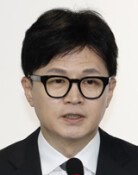Probe called for corruption allegations in overseas resource development
Probe called for corruption allegations in overseas resource development
Posted March. 20, 2015 07:18,
As prosecutors investigation on the corruption in overseas resource development projects comes into full swing, circumstantial information is revealed that influential figures in the Lee Myung-bak administration have been related to the corruption allegations behind the scene. Keang Nam Enterprises Ltd., which had been in the forefront of overseas resource development projects with Korea National Oil Corporation, received conditional loans over 35 billion won (approx. USD 31.18 million) from the government. The Korean government has lent the conditional loan to companies that develop overseas resources. In this loan system, the recipient companies repay loan only when they succeed in development. Otherwise, it is not required for the companies to pay back. It is almost like a special favor to the companies without any burden of risk. Out of the conditional loan that Keang Nam Enterprises has received, multiple billion won turned out to be stashed in bank accounts of family members of the company Chairman Sung Wan-jong. Chairman Sung served as an advisor to the presidential transition committee for Lee Myung-bak administration and reportedly is on intimate terms with former Rep. Lee Sang-deuk, a brother of the former President Lee Myung-bak.
Korea Gas Corporation and SK Innovation also received the conditional loans ranging from tens to hundreds of billion won in oil reserve exploration project in Russia and Kazakhstan, but ended up with little achievement. If these companies go through normal procedures to invest and fail, it is not possible to hold them criminally liable. However, if they line somebodys pocket with taxpayers money under the excuse of overseas resource development project, it is fair to call it a criminal act. During the Lee Myung-bak administration, state-owned companies have spent over 31 trillion won (approx. USD 27.62 million) in overseas resource development projects. It is hard to rule out possibilities that some murky business existed in the projects handling great deal of money and a part of the capital may have been poured into the political funds.
Such acts to satisfy individuals personal interest using the overseas resource development projects related to energy security of Korea must be thoroughly investigated and strictly punished. The Justice Minister Hwang Gyo-ahn announced the prosecution would start in-depth probe on the alleged corruption, saying, Last year, prosecutors just had internal investigation as the circumstance did not allow the prosecution to launch a probe. But this year, things have changed and the prosecution can work on the allegations.
However, some suspect a political intention behind the corruption investigation as the majority of investigation targets are related to the major projects conducted under the Lee Myung-bak administration and some of them have connection to the former vice-minister of the Ministry of Knowledge Economy, Park Young-joon, and the former lawmaker Lee Sang-deuk. Minister Hwang said on Mar.18, As far as I know, there is no set target of this investigation. But eradication of corruption must be carried out on a regular basis. Investigating corruption allegations in short burst during a specific period, as if doing overdue homework, is an act of incurring controversy.
Overseas resource development is a project which hardly produces fruitful results during a short time, and a business with low probability of success. If companies have to be held responsibility for the result, no company would initiate an overseas resource development project. Therefore, political and managerial decisions of the overseas resource development projects must not be judged by dust-wiping style investigation and by the public opinion. Even though, alleged embezzlement and corruption, which wasted astronomical amount of tax and tainted government-owned corporations, must be thoroughly investigated. The prosecution must expose corruption crimes based on evidence through precise and accurate investigation. That would be the only way to curb suspicions over politically motivated investigation.
Headline News
- N. Korea launches cyberattacks on S. Korea's defense companies
- Major university hospital professors consider a day off each week
- Italy suffers from fiscal deficits from ‘Super Bonus’ scheme
- Inter Milan secures 20th Serie A title, surpassing AC Milan
- Ruling and opposition prioritize spending amid tax revenue shortfalls







